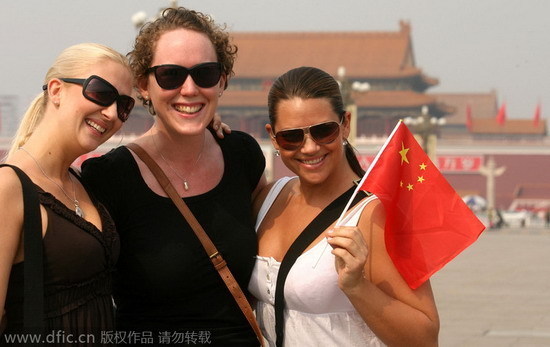 |
|
Foreign tourists pose for photos at Tian'anmen Square in Beijing, China, September 24, 2009. [Photo/IC] |
Young nation
Chao said people are more likely to succeed in the US because they are passionate about what they do, which is very different from Chinese culture.
"The Chinese encourage their children to shore up their weaknesses, mend their weaknesses. But the Americans emphasize their strengths, meaning they work to cultivate their talents," Chao said.
Affirmative culture
Chao said that Americans are always saying "Thank you! You are doing great! Keep going", which is encouraging and make people improve by the reinforcements.
Chen Ruicong, a physics major who plans to go abroad for further study, said he learnt a lot from Chao's insight.
"The biggest difference is that Americans emphasize straight talk and value individualism, which we need time to understand and get used to," Chen said.
Students from Peking University wondered why the young generation has better knowledge of science and technology than the Americans but struggles to show obvious advantages in global competitions.
"Cultural differences might be the answer. We will learn from each other," Chen said.
Liu Bo, a student from the institute of foreign languages of Peking University, said that he found that Chao's family values traditional Chinese culture a lot though Chao gave a speech on the topic of western culture.
"They always say their roots are back in China, and that touches me," said Liu.
Contact the writer at [email protected]